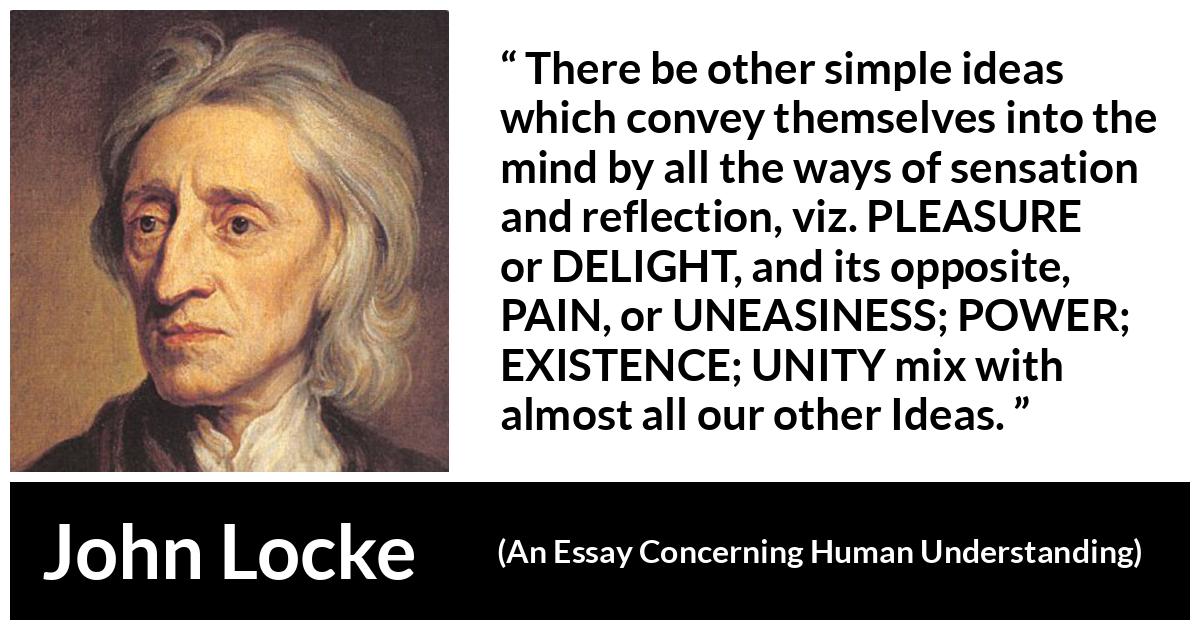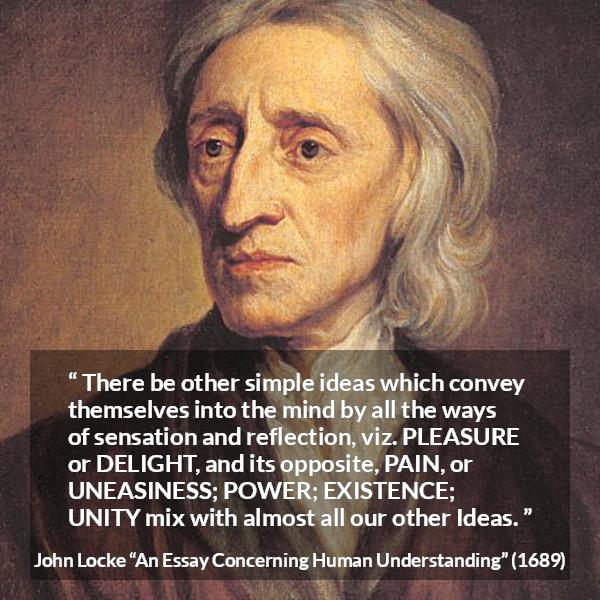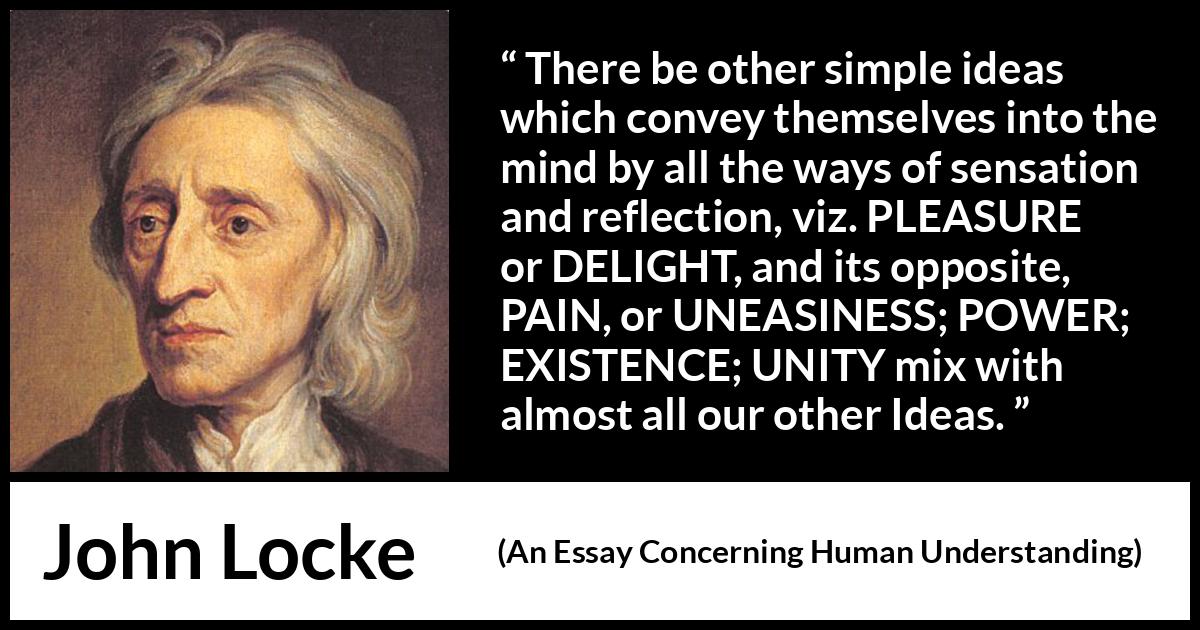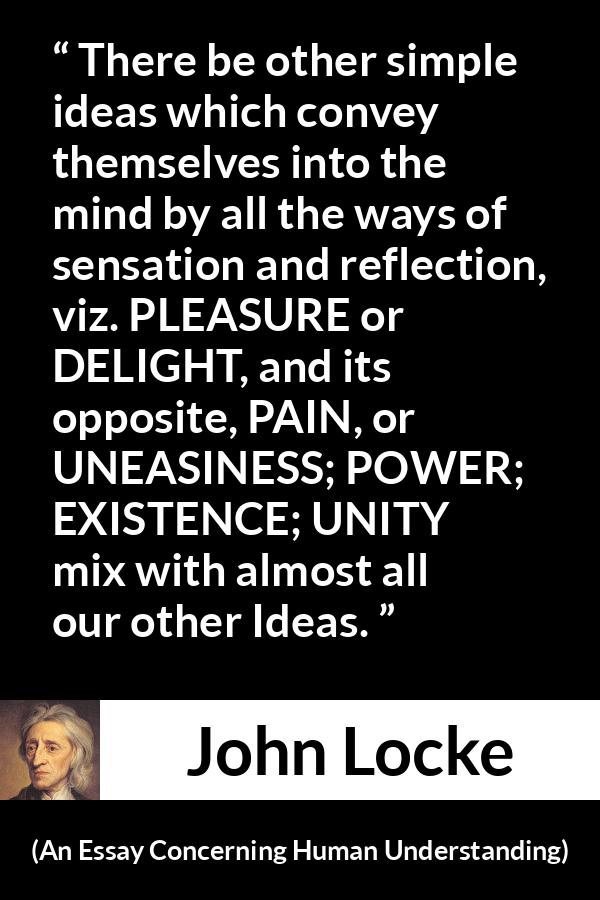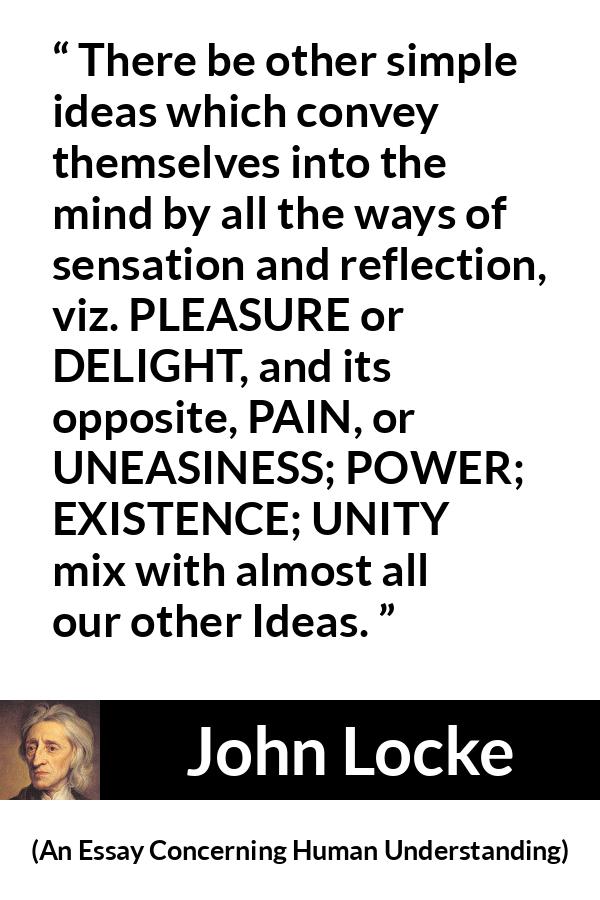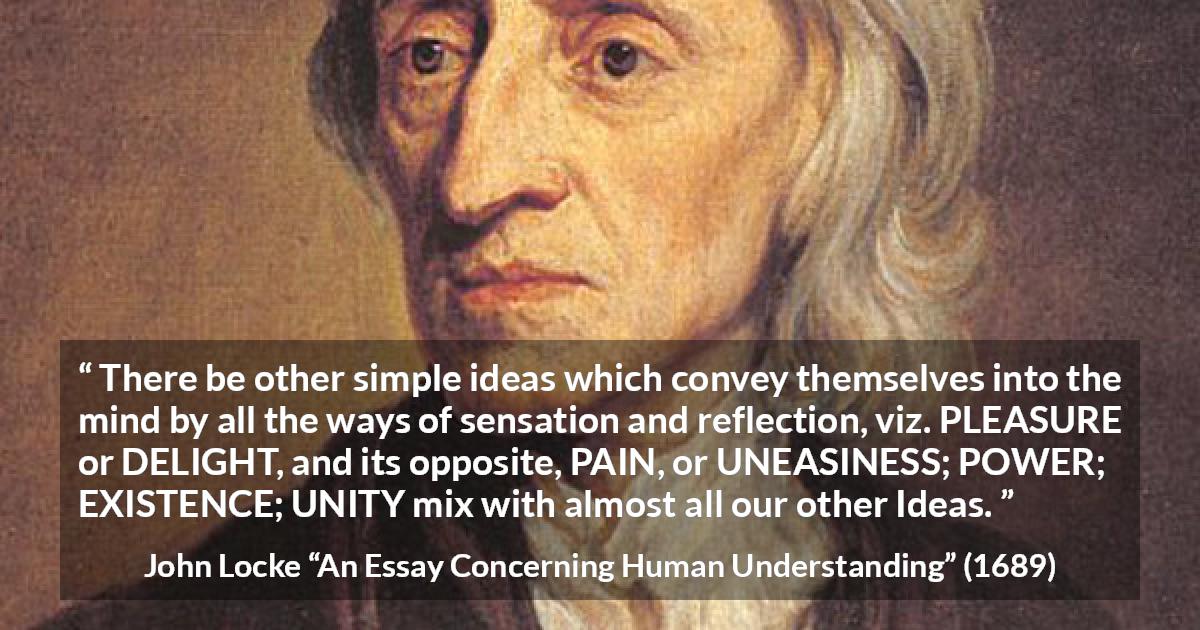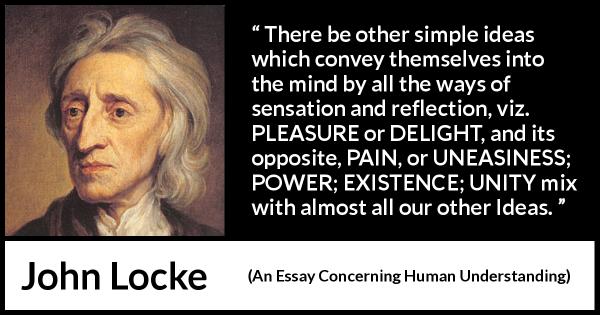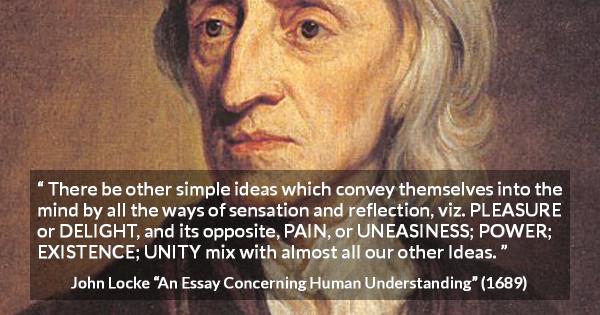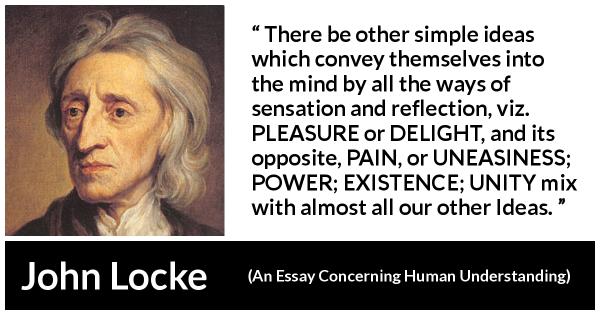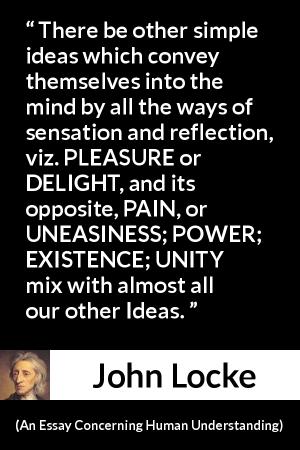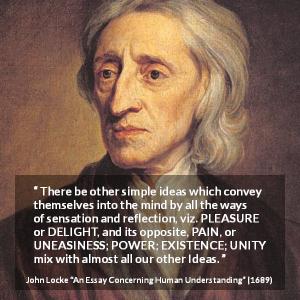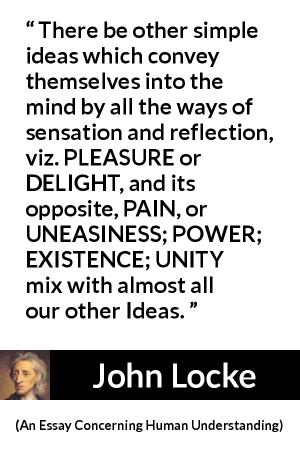“ There be other simple ideas which convey themselves into the mind by all the ways of sensation and reflection, viz. PLEASURE or DELIGHT, and its opposite, PAIN, or UNEASINESS; POWER; EXISTENCE; UNITY mix with almost all our other Ideas. ”
John Locke, An Essay Concerning Human Understanding (1689). copy citation
| Author | John Locke |
|---|---|
| Source | An Essay Concerning Human Understanding |
| Topic | pleasure power pain unity |
| Date | 1689 |
| Language | English |
| Reference | |
| Note | |
| Weblink | http://www.gutenberg.org/files/10615/10615-h/10615-h.htm |
Context
“Of some of the MODES of these simple ideas of reflection, such as are REMEMBRANCE, DISCERNING, REASONING, JUDGING, KNOWLEDGE, FAITH, &c., I shall have occasion to speak hereafter.
CHAPTER VII.—OF SIMPLE IDEAS OF BOTH SENSATION AND REFLECTION.
1. Ideas of Pleasure and Pain.
There be other simple ideas which convey themselves into the mind by all the ways of sensation and reflection, viz. PLEASURE or DELIGHT, and its opposite, PAIN, or UNEASINESS; POWER; EXISTENCE; UNITY mix with almost all our other Ideas.
2. Delight or uneasiness, one or other of them, join themselves to almost all our ideas both of sensation and reflection: and there is scarce any affection of our senses from without, any retired thought of our mind within, which is not able to produce in us pleasure or pain.” source
CHAPTER VII.—OF SIMPLE IDEAS OF BOTH SENSATION AND REFLECTION.
1. Ideas of Pleasure and Pain.
There be other simple ideas which convey themselves into the mind by all the ways of sensation and reflection, viz. PLEASURE or DELIGHT, and its opposite, PAIN, or UNEASINESS; POWER; EXISTENCE; UNITY mix with almost all our other Ideas.
2. Delight or uneasiness, one or other of them, join themselves to almost all our ideas both of sensation and reflection: and there is scarce any affection of our senses from without, any retired thought of our mind within, which is not able to produce in us pleasure or pain.” source
